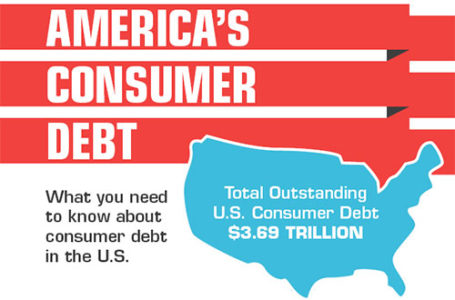There’s a fine line between aggressively seeking repayment and downright harassment. Here’s where that line is…
Once a credit card debt gets charged off and sent to collections, everything that happens after that is regulated under the Fair Debt Collections Practices Act (FDCPA). This federal law protects borrowers from unfair and abusive collection practices. So, while a collector has every right to aggressively pursue repayment, they can’t cross any of the lines set forth by the FDCPA.
The FDCPA prohibits abusive tactics
According to the FDCPA, debt collectors can only call you between 8:00 AM and 9:00 PM any debt. This prevents calls in the middle of the night or wee hours of the morning about your debt.
They also can’t call you repeatedly to an excessive degree. Of course, the tricky part is the FDCPA doesn’t define excessive. But if you’re receiving multiple calls every hour from the same collector and they just won’t leave you alone, that’s abuse.
- They can’t use obscene or profane language during a call
- They can’t make threats of violence or personal harm
- They can’t say they’re going to blacklist you from credit or publish your name on a list of bad debtors or deadbeats
- They can’t call your employer, except to verify your identity (i.e. they can’t tell them how much you owe or even that you owe a debt)
These threats are all false
Many times, a collector with threaten you with some extreme consequence in an effort to scare you into repaying. None of the following threats are legal:
- You can’t be arrested and throw in jail because of nonpayment of a credit card debt
- They can’t even call the cops and have police sent to your home or work
- They can’t garish your wages, seize your property or take your tax refund without a court order
- They also can’t threaten legal action unless they plan to take it
- They also can’t broadcast your debt to your friends, neighbors or even your employer
False statements are also prohibited under the FDCPA
Collectors also aren’t allowed to do anything that misleads you or tricks you into thinking the collector serves in some official government capacity.
- Collectors can’t impersonate agents of any federal or state government agency
- They can’t lie and say they’re attorneys
- They can’t act like an agent of a credit bureau
- There can’t be any false statements about how much you owe
- They can’t send documents or correspondence that make it seem like legal documents or documents from a government agency
Other unfair practices prohibited by the FDCPA
In addition to outright abuse and threats, there are other unfair practices that the FDCPA expressly prohibits:
- A collector cannot charge additional fees and interest charges not outlined in the original lending agreement. In other words, since credit card APR is not listed in a credit card agreement, collectors shouldn’t be able to charge interest on a debt that’s in collections.
- They can’t deposit a post-dated check earlier than the date indicated.
- They must honor any requests that you make for when it’s inconvenient for them to contact you. For instance, if you tell them they cannot contact you at work, then they can’t do that.
- They can’t overinflate or overstate how much you owe.
- They can’t report that you owe more to the credit bureaus than you actually do
What to do if your rights are violated
If a collector crosses the line and does something prohibited by the FDCPA, then you have the right to lodge a formal complaint with the FTC. You also have a right to sue the collector for harassment in civil court. If you can prove your case, you can collect damages for the harassment.
Learn more about how to file debt collection complaints with the FTC »

